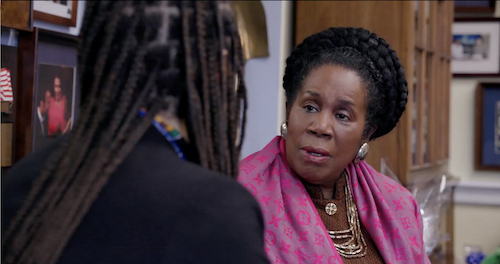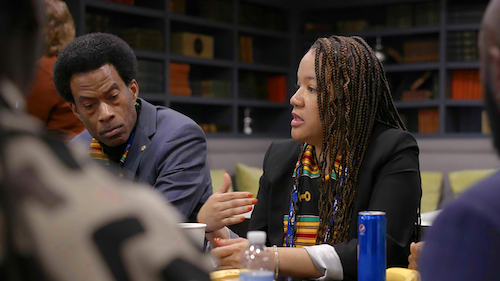Communiqué
A rookie alderwoman led the passage of the first reparations bill for Black Americans in “The Big Payback” on INDEPENDENT LENS, Jan. 16 at 10 pm
< < Back to a-rookie-alderwoman-led-the-passage-of-the-first-reparations-bill-for-black-americans-in-the-big-payback-in-independent-lens-jan-16-at-10-pmPBS’S INDEPENDENT LENS TO COMMEMORATE MARTIN LUTHER KING JR. DAY WITH THE TELEVISION
PREMIERE OF
“THE BIG PAYBACK”
SPOTLIGHTING THE FIGHT FOR REPARATIONS LEGISLATION FOR BLACK AMERICANS
JANUARY 16, 2023 at 10 pm
From Co-Directors Erika Alexander and Whitney Dow, the Documentary Follows Alderman Robin Rue Simmons’ Fight to Pass the First Government-Funded Reparations Program in Evanston, Illinois, Alongside Congresswoman Sheila Jackson Lee as She Leads a National Movement To Pass HR 40
In the summer of 2019, rookie Illinois Alderwoman Robin Rue Simmons ushered in the first legislation of its kind in the United States: Resolution 126-R-19 that devoted funds to local reparations for Black residents in Evanston, Illinois. “The Big Payback” follows Simmons as she leads the community on the uphill battle to obtain reparations, or payments meant to correct for the historic systematic bias inflicted upon descendants of African American slaves.

“The Big Payback” makes its television debut on PBS’s Emmy award-winning documentary anthology series INDEPENDENT LENS, to commemorate Martin Luther King Jr. Day on January 16, 2023, at 10:00 p.m. The film will also be available to stream on the PBS Video app.
Co-directed by Erika Alexander (“Living Single,” “John Lewis: Good Trouble”) and Whitney Dow (“Two Towns of Jasper,” “Whiteness Project”), the documentary spotlights the very first tax-funded reparations bill for African Americans that, due to the tireless efforts of Simmons, passed in Evanston, Illinois, in 2019—400 years after the first enslaved Africans arrived in Jamestown, Virginia. The program is set to deliver $10 million as a correction for the systematic bias historically inflicted upon its Black constituents. Alexander and Dow chronicle the bill’s passage, and demonstrate how Evanston serves as a model for the rest of the country when it comes to enacting slavery reparations.
In addition to the trailblazing efforts of Simmons, Alexander and Dow also chronicle the work of Congresswoman Sheila Jackson Lee (D-TX-18), who’s leading the charge in Washington, D.C., to pass HR 40, a national bill that has sat in Congress for over 30 years, that would establish a commission to study the legacy of slavery and consider reparations for Black Americans. The bill continues to be a topic of discussion heading into November midterm elections as the full House of Representatives has yet to vote on it.

Featuring interviews with political figures including Simmons and Lee, scholars on the subject like Ta-Nehisi Coates, and community members who support reparations and others who remain skeptical, the documentary highlights the legislative process toward restorative justice in a Chicago suburb and throughout the United States. Filmed over two years and through the onset of the COVID-19 pandemic, “The Big Payback” also focuses on the racial reckoning of 2020 following the death of George Floyd, which runs parallel to Simmons’ and Lee’s work. While the racial reckoning of 2020 plays out in the background, the two women navigate supporters and detractors in this quest toward correcting historical wrongs.
“As a Black woman and a white man, Whitney and I come from polar opposite backgrounds, but our American struggles are inextricably linked,” said Erika Alexander and Whitney Dow, co-directors of “The Big Payback.” “So we’ve partnered on this rocky journey and used our skills as storytellers to help create a compelling conversation and shine the light on the visionaries toiling in it. We’re honored to do our part to energize and document this powerful movement.”
Co-produced by Black Public Media and presented by INDEPENDENT LENS, “The Big Payback” serves as a window into the legislative process to pass reparations tied to slavery. The film features a myriad of perspectives in an effort to kickstart wider conversations around a subject that’s historically evaded political action—until a small Chicago suburb and two fearless women challenged the status quo.

